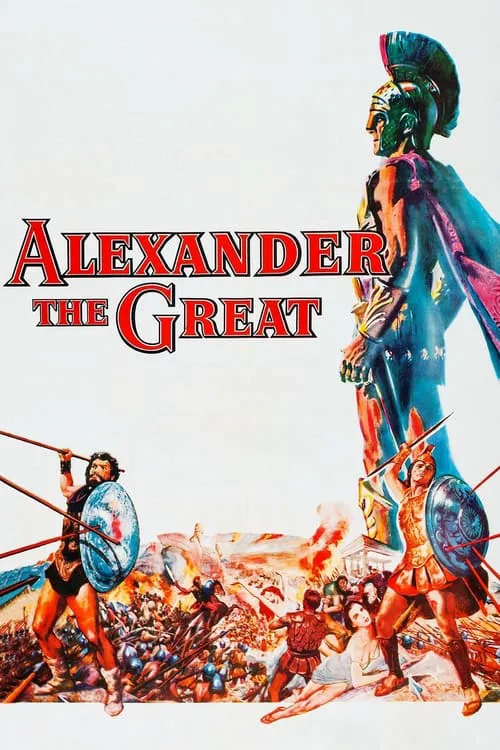Alexander the Great

Trama
Alexander the Great is a 2004 epic biographical drama film directed by Oliver Stone and written by Christopher Kyle and Stone. The film stars Colin Farrell as Alexander III, the legendary king of ancient Greece, and Val Kilmer as his father, King Philip II. The movie follows the extraordinary life of Alexander, from his ascension to the throne of Macedon to his conquests of Persia and beyond, with an aim to spread Greek culture and knowledge throughout the known world. The film opens in 336 BC, with King Philip II, a ruthless and cunning leader, ruling over Macedonia. Philip is on the brink of a campaign against the Persian Empire, but his life is cut short when he is stabbed to death by one of his own bodyguards. Alexander, Philip's 20-year-old son, is named as Philip's successor, despite being young and inexperienced in comparison to his father. Alexander's ascension to the throne sets in motion a chain of events that will shape the course of world history. He faces opposition from his half-brother, Philip's son by a previous wife, but is ultimately able to consolidate his power and set his sights on conquest. Alexander's primary goal is to conquer the Persian Empire, which at the time stretches from Egypt to India, and to spread Greek culture, language, and philosophy throughout the known world. As Alexander sets out on his campaign, his father's old advisors try to guide him, but he is determined to forge his own path. He faces many challenges, including treacherous terrain, fierce battles, and the complexities of diplomacy. Along the way, he falls in love with Hephaestion, one of his closest companions, and they share a romantic and intense relationship. Alexander's military prowess is showcased in a series of epic battles against the Persian Empire, including the Battle of Granicus, the Battle of Issus, and the Battle of Gaugamela. At each stage, he demonstrates his strategic genius and his ability to inspire his soldiers to fight on. His men become increasingly devoted to him, and he uses this loyalty to his advantage, often pushing them to their limits. As Alexander's empire grows, so does his ambition. He becomes increasingly obsessed with his own destiny and sees himself as a god-king, sent to Earth to spread enlightenment and conquer the world. This obsession leads to some of the film's most intense and dramatic moments, as Alexander struggles with the weight of his own expectations and the consequences of his actions. One of the most significant battles in the film is the Battle of Tyre, where Alexander and his men face off against the defenders of the island city. The battle is intense and chaotic, with both sides suffering heavy losses. Alexander is forced to come up with a clever plan to capture the city, and his success is met with widespread triumph and adoration from his soldiers. However, Alexander's victories come at a steep price, and the film highlights the human cost of his campaigns. Many of his soldiers are killed or maimed, and he is forced to confront the consequences of his actions. The film also explores Alexander's complex relationships with his close companions, including Hephaestion, Ptolemy, and Aristotle. These relationships are often romantic and intense, and they provide a glimpse into Alexander's personal and emotional life. As the film reaches its climax, Alexander faces opposition from his own men, who are increasingly wary of his ambition and his tendency to disregard the rules. The turning point comes when Alexander orders his soldiers to march into the scorching deserts of Babylon, where they face a series of fierce battles against the Persian defenders. The heat and the bloodshed take their toll, and many of Alexander's men begin to question their mission. The film's final act is a poignant and introspective one, as Alexander grapples with the consequences of his actions and the price of his ambition. He is forced to confront the reality of his own mortality, and he begins to see the world from a different perspective. The film ends with Alexander's funeral procession, as his closest companions say their farewells and mourn his passing. In conclusion, Alexander the Great is a sweeping epic that explores the life and legacy of one of history's greatest leaders. The film is a spectacle, with epic battles, stunning landscapes, and a star-studded cast. But it is also a thoughtful and introspective exploration of Alexander's complexities, flaws, and human emotions. The film raises important questions about the nature of power, ambition, and the human cost of conquest, and it provides a fascinating glimpse into the life and times of one of history's most fascinating figures.
Reseñas
Recomendaciones




